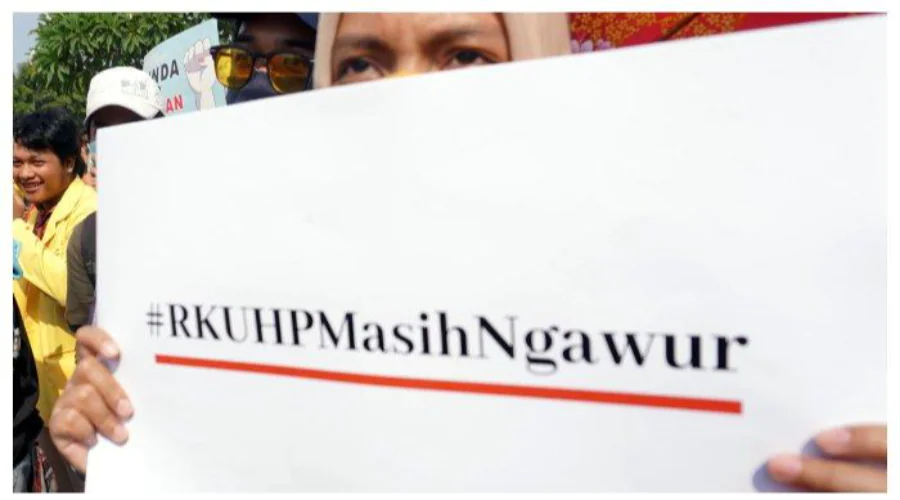
- 06 Dec
- 2022
Ilustrasi gambar (Tribunnews)
The Corruption Crime Polemic Enters the Criminal Code Bill, This Says a UM Surabaya Legal Expert
Discussion of the Draft Criminal Code (RUU KUHP) has sparked polemics, one of which includes the criminal act of corruption (Tipikor) in the RKUHP.
Responding to this, the Head of the Center for Anti-Corruption and Democracy Studies (PUSAD) UM Surabaya, Satria Unggul Wicaksana, also provided comments and some notes.
First, Satria said that the presence of Law 31/1999 concerning Corruption Crimes (UU Tipikor) was the antithesis of corrupt practices in the New Order era, this was in line with the legal implications of the issuance of TAP MPR Number XI/MPR/1998 and TAP MPRS Number VIII/ MPR/2001.
And then gave birth to Law Number 30 of 2002 concerning the KPK. Where during the New Order era, the issuance of TAP MPR Number XI/MPR/1998 and TAP MPRS Number VIII/MPR/2001. Thus, the Corruption Law is a lex specialist which should be a priority portion rather than rearranging it in the RKUHP as a lex generalist.
"Second, this has certainly aggravated the position of post-reform institutions such as the KPK-RI in carrying out its authority to eradicate corruption, because we understand that the KPK was born through Law No. 30 of 2022 whose spirit is to maintain accountability and commitment to eradicating corruption carried out by the Indonesian Police and the Indonesian Attorney General's Office. quite weak,” said Satria Tuesday (6/12/22)
Third, according to Satria who is also a lecturer at the UM Surabaya Law Faculty, there are various irregularities in the formulation of corruption in the RKUHP, for example in Article 607 of the RKUHP which is a new form of Article 2 paragraph (1) of the Corruption Law.
“This regulation apparently contains a decrease in corporal punishment from 4 years to 2 years in prison. That's not enough, the minimum fine is the same, dropping from Rp. 200 million to only Rp. 10 million," he added.
According to his explanation, then Article 608 of the RKUHP is a new form of Article 3 of the Corruption Law. Even though corporal punishment has increased from 1 year to 2 years in prison, it is not proportional to the legal subjects of the perpetrators, namely public officials. This is also an attempt to equalize the punishment between the public and someone who has a certain public position.
Including, Article 610 paragraph (2) RKUHP which is a new form of Article 11 of the Corruption Law. Almost similar to other provisions, the sentence aimed at bribe recipients has also decreased, from 5 years to 4 years in prison. Other principal punishments, such as fines, have also decreased, from Rp. 250 million to Rp. 200 million.
"This certainly reduces the spirit of eradicating corruption that has been built up after the reform, and is a turning point in realizing Indonesia free from corruption," he said.
Fourth, the formulation of detrimental to state finances in Article 607 of the RKUHP is contrary to the Constitutional Court decision Number 31/PUU-X/2012. How could it not be, the Court in its considerations has emphasized that law enforcement officers can not only coordinate with the BPKP and BPK when calculating state financial losses, but also with other agencies, and can even prove themselves beyond the findings of these state institutions.
"On the basis of this decision, it becomes clear if it is said that the RKUHP contradicts the Constitutional Court's decision, and will be biased in determining state finances," said Satria again.
From the 4 points explained, the RKUHP on articles related to Corruption should not need to be included, in fact the government should have further refined the Corruption Law to adopt and implement provisions and new types of corruption that are recognized by the international community in the UN Convention Against Corruption (UNCAC). .
"It's not actually taking a step back by formulating it in the RKUHP whose spirit reduces the spirit of eradicating corruption in Indonesia," said Satria.










(0) Comments